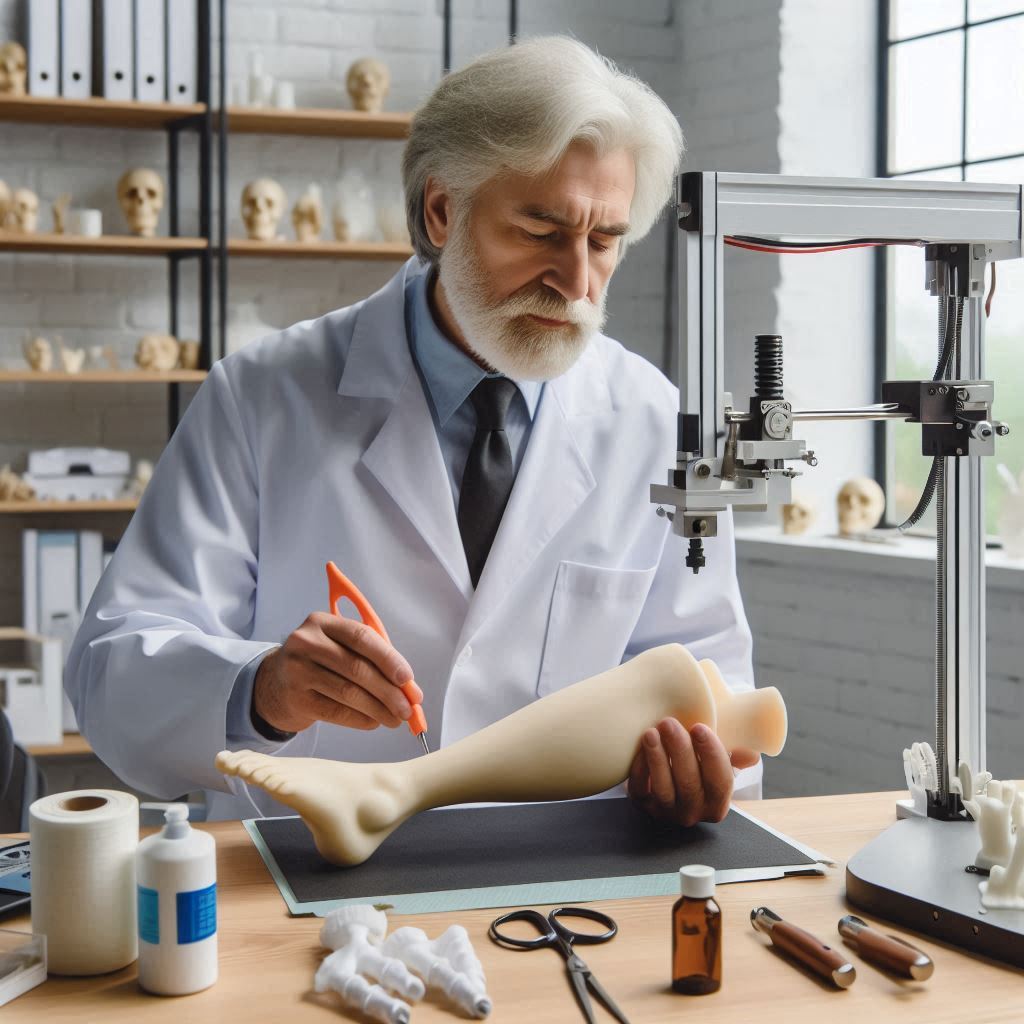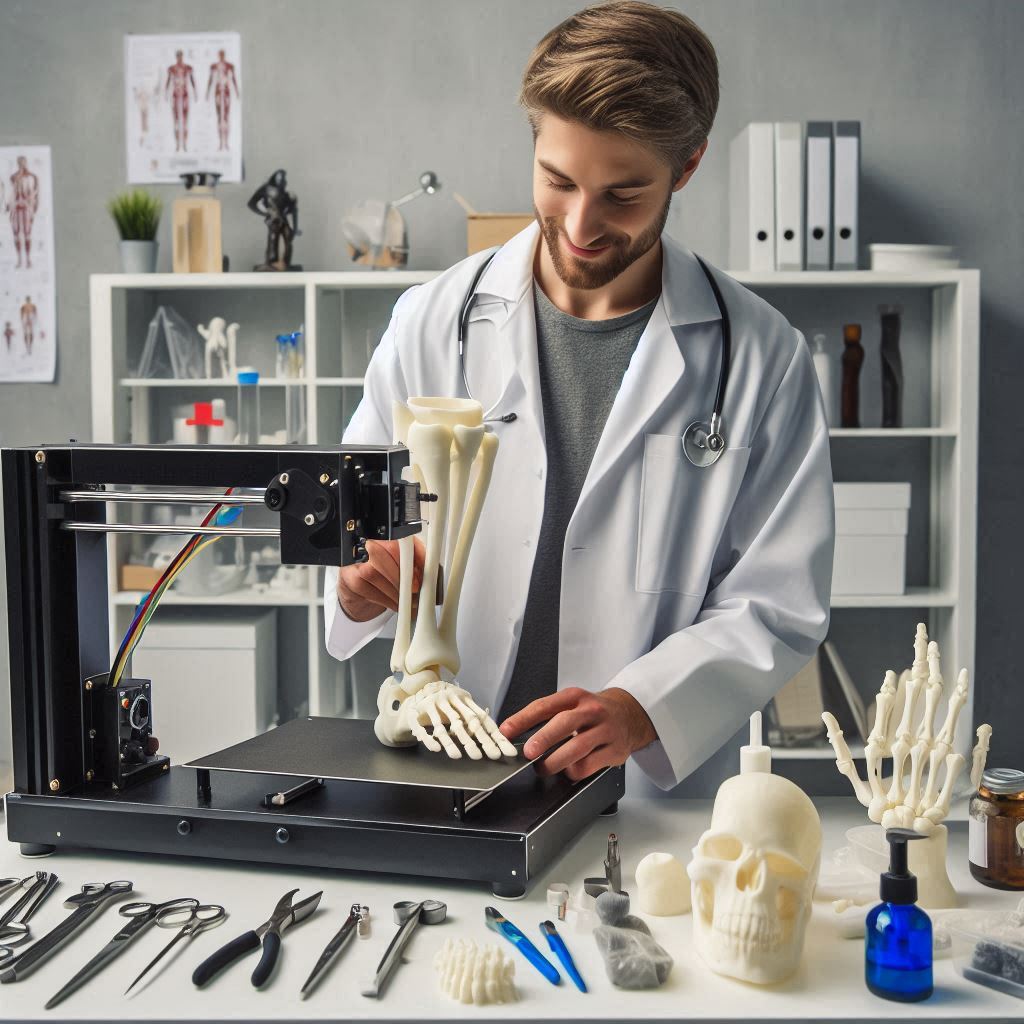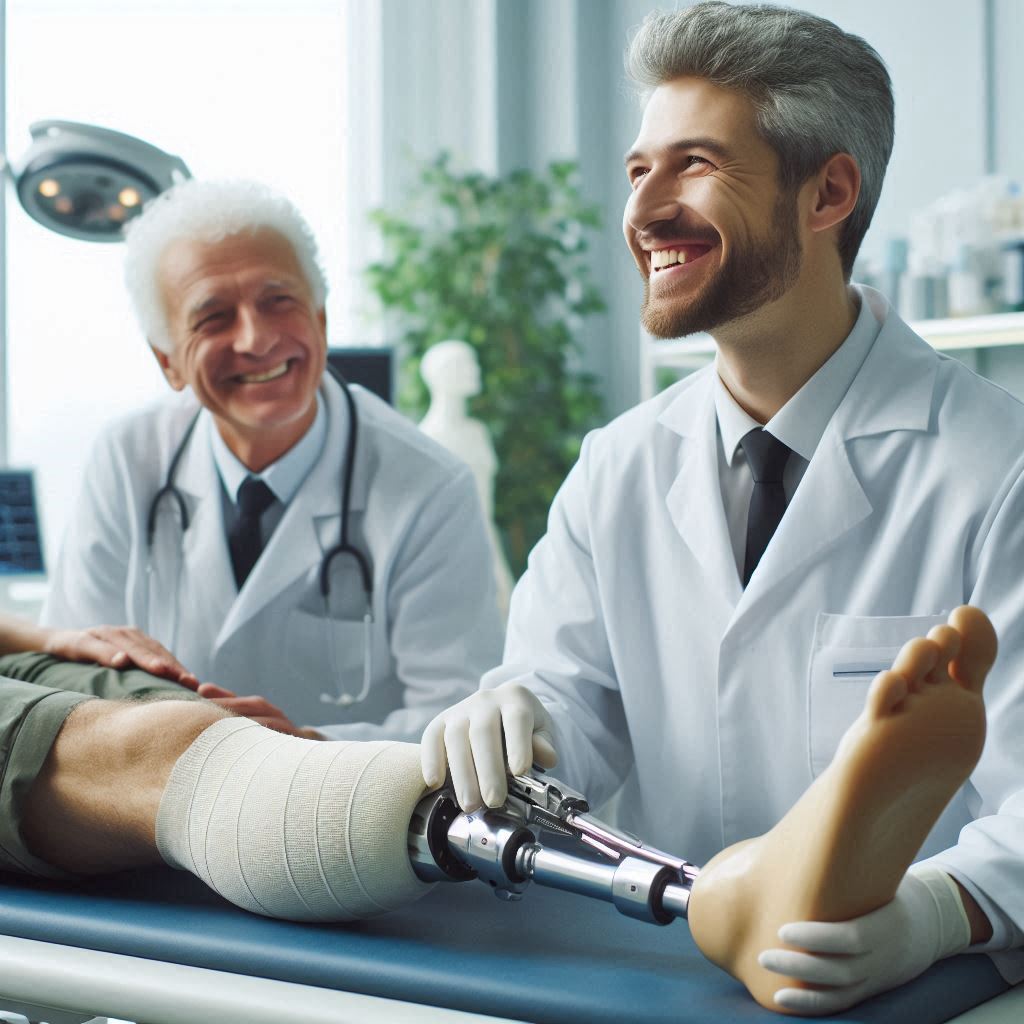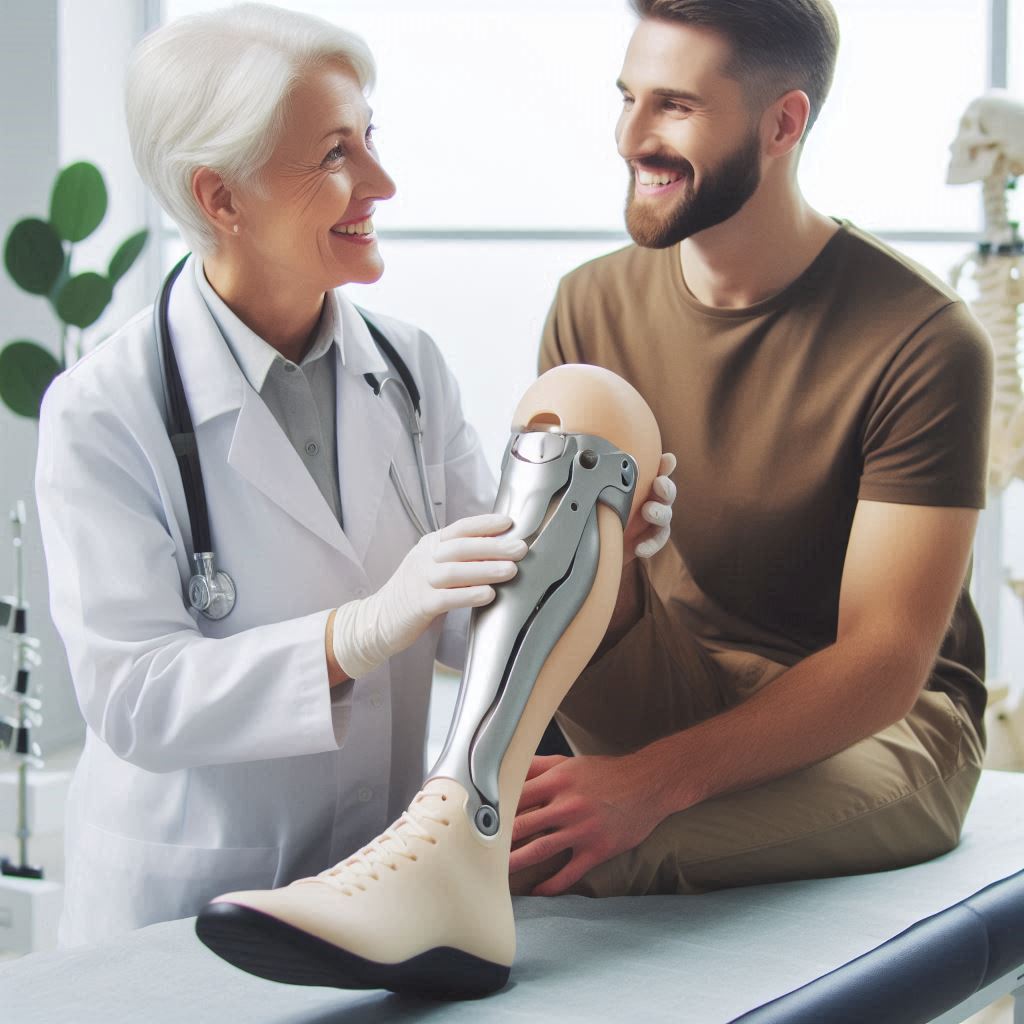Introduction
Orthopedic technologists provide essential support in orthopedic care.
They assist orthopedic surgeons during procedures and ensure patient care.
Their responsibilities include applying and removing casts, splints, and braces, preparing patients for surgery, and assisting in diagnostic procedures using imaging technology like X-rays and MRIs.
Workplace settings significantly impact the roles and responsibilities of orthopedic technologists.
Different settings offer diverse experiences, opportunities, and challenges.
Understanding these environments helps technologists choose the best fit for their skills and career goals.
Workplace settings also influence patient care quality and efficiency.
Exploring common workplace settings for orthopedic technologists reveals the variety in their professional experiences.
From hospitals to private practices, each setting offers unique opportunities and challenges.
This exploration helps prospective and current technologists understand where they might thrive best.
It also highlights the importance of adaptability and continuous learning in their careers.
Hospital Settings
Orthopedic technologists play crucial roles in hospital settings, particularly in departments such as orthopedics, emergency rooms, and surgery.
In these environments, they are responsible for a variety of tasks that require precision, skill, and a strong understanding of orthopedic principles.
Responsibilities in Hospital Departments
In the orthopedics department, orthopedic technologists assist with patient care, including the application and removal of casts and splints.
They also help in fitting and adjusting orthopedic braces and other supportive devices.
These technologists ensure that patients receive proper instructions for using and caring for their orthopedic devices.
In the emergency room, orthopedic technologists quickly assess and address acute orthopedic injuries.
They work alongside emergency room physicians and nurses to provide immediate care for fractures, dislocations, and other musculoskeletal injuries.
Their expertise in immobilizing injuries is vital for preventing further damage and alleviating patient pain.
During surgeries, orthopedic technologists assist orthopedic surgeons by preparing and maintaining surgical instruments and equipment.
They ensure that the operating room is sterile and organized, ready for any orthopedic procedure.
They may also assist in positioning patients and ensuring that they are comfortable and secure during surgeries.
Collaboration with Other Healthcare Professionals
Collaboration is a key aspect of an orthopedic technologist’s role in a hospital setting.
They work closely with orthopedic surgeons, nurses, physical therapists, and other healthcare professionals to provide comprehensive patient care.
This team-based approach ensures that patients receive the best possible treatment and support.
Effective communication is essential for orthopedic technologists.
They must clearly convey patient information and updates to other healthcare team members.
This collaboration helps to coordinate patient care, streamline treatment plans, and improve overall outcomes.
Exposure to a Wide Range of Orthopedic Cases and Surgeries
Working in a hospital setting exposes orthopedic technologists to a diverse array of orthopedic cases and surgeries.
They encounter various conditions, from simple fractures to complex musculoskeletal disorders.
This exposure enhances their skills and knowledge, making them proficient in handling different orthopedic challenges.
Orthopedic technologists in hospitals also gain experience with advanced surgical techniques and technologies.
They may assist in minimally invasive procedures, joint replacements, and other specialized surgeries.
This hands-on experience with cutting-edge treatments keeps them at the forefront of orthopedic care.
Additionally, hospital settings provide opportunities for continuous learning and professional growth.
Orthopedic technologists can attend workshops, seminars, and training sessions to stay updated on the latest advancements in their field.
This commitment to ongoing education ensures that they remain competent and effective in their roles.
Read: Ultrasound Technician vs. Radiologic Technologist
Orthopedic Clinics
Orthopedic technologists play crucial roles in outpatient settings, providing essential support to orthopedic surgeons and physical therapists.
They are responsible for ensuring the smooth functioning of orthopedic clinics and delivering quality care to patients undergoing orthopedic treatment.
Roles and Responsibilities in Outpatient Settings
- Assisting orthopedic surgeons during examination and treatment procedures
- Performing diagnostic tests such as X-rays and MRIs under the supervision of a physician
- Applying casts, braces, and other orthopedic devices as per the physician’s instructions
- Taking patient medical histories and documenting treatment plans
- Providing education to patients on post-treatment care and rehabilitation exercises
Working Closely with Orthopedic Surgeons and Physical Therapists
Orthopedic technologists collaborate closely with orthopedic surgeons and physical therapists to ensure comprehensive care for patients.
They assist surgeons in the operating room, prepare patients for surgery, and monitor their vital signs during procedures.
They also help physical therapists in developing personalized rehabilitation plans for patients post-surgery.
Providing Pre and Post-Operative Care to Patients
- Preparing patients for surgery by explaining the procedure and addressing their concerns
- Assisting in the pre-operative preparation of patients, including sterilization of surgical equipment
- Checking on patients post-surgery to monitor their recovery progress and address any issues
- Educating patients and their families on post-operative care instructions and follow-up appointments
Overall, orthopedic technologists play a vital role in the functioning of orthopedic clinics, ensuring that patients receive high-quality care before, during, and after their orthopedic procedures.
Read: The Role of Technology in Modern Sonography
Sports Teams and Athletic Organizations
Orthopedic technologists play a crucial role in providing medical support to sports teams and athletic organizations.
They work closely with athletes to ensure their safety and optimal physical condition during games and events.
Providing onsite medical support during games and events
Orthopedic technologists are often present on the sidelines during practices and games, ready to spring into action in case of an injury.
They assess the situation, provide immediate first aid, and determine the next steps for further treatment.
Assisting with rehabilitation programs for athletes
After an injury, orthopedic technologists collaborate with physical therapists and sports medicine physicians to develop and implement customized rehabilitation programs for athletes.
This may involve administering therapeutic exercises, assisting with range of motion activities, and monitoring progress throughout the recovery process.
Opportunities to specialize in sports-related injuries
Orthopedic technologists who work with sports teams and athletic organizations have the opportunity to specialize in sports-related injuries.
They gain valuable experience in diagnosing and treating common orthopedic issues that athletes may face, such as sprains, strains, fractures, and dislocations.
Overall, working with sports teams and athletic organizations as an orthopedic technologist is a dynamic and rewarding career path that allows professionals to make a direct impact on the health and performance of athletes at all levels.
Read: Preparing for a Sonography Job Interview: Tips
Transform Your Career Today
Unlock a personalized career strategy that drives real results. Get tailored advice and a roadmap designed just for you.
Start Now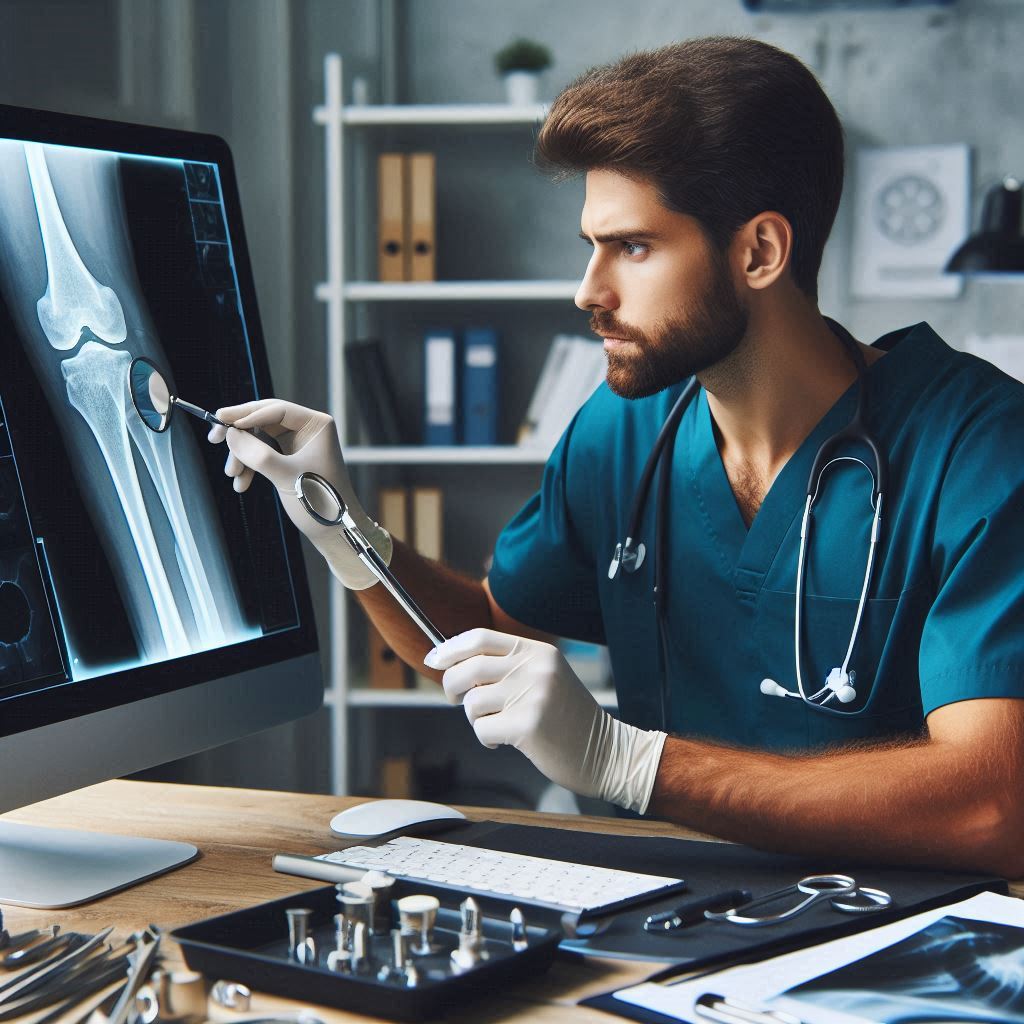
Rehabilitation Centers
Orthopedic technologists play crucial roles in rehabilitation centers, where they assist patients recovering from orthopedic injuries or surgeries.
Their responsibilities include implementing treatment plans and aiding in therapeutic exercises.
Working with Patients Recovering from Orthopedic Injuries or Surgeries
In rehabilitation centers, technologists support patients during their recovery journeys.
They monitor progress, adjust treatment plans as needed, and provide encouragement to promote healing and mobility.
Technologists assist patients in performing therapeutic exercises prescribed by physical therapists.
They ensure exercises are performed correctly and safely, focusing on strengthening muscles, improving range of motion, and enhancing overall functional ability.
Implementing Treatment Plans and Assisting with Exercises
Orthopedic technologists collaborate closely with physical therapists and occupational therapists to deliver comprehensive care.
They assist in implementing individualized treatment plans that address patients’ specific orthopedic needs and goals.
Technologists play a hands-on role in patient care, helping to manage pain, reduce swelling, and promote recovery.
They may use modalities such as heat, cold therapy, or electrical stimulation to aid in rehabilitation and alleviate discomfort.
Collaborating with Physical Therapists and Occupational Therapists
Collaboration is key in rehabilitation settings, where technologists work alongside therapists to optimize patient outcomes.
They communicate progress and challenges, ensuring coordinated care and continuity in treatment plans.
Effective teamwork allows technologists to integrate their expertise with that of therapists, fostering a holistic approach to orthopedic rehabilitation.
Together, they empower patients to regain independence and resume daily activities with confidence.
Read: Continuing Education for Surgical Technologists: Why It Matters
Orthopedic Device Companies
Orthopedic device companies are a key workplace setting for orthopedic technologists, providing a unique and specialized environment for professionals in the field.
Involvement in the development and testing of orthopedic devices
Working for orthopedic device companies allows orthopedic technologists to be at the forefront of the latest advancements in orthopedic technology.
They are involved in the development and testing of new devices to improve patient outcomes and surgical procedures.
Orthopedic technologists play a vital role in ensuring that orthopedic devices meet quality standards and are safe for patient use.
They work closely with engineers and researchers to contribute their expertise in orthopedic technology.
Educating healthcare professionals on the use of orthopedic equipment
Orthopedic device companies often rely on orthopedic technologists to provide training and education to healthcare professionals on the proper use of orthopedic equipment.
These professionals may conduct seminars, workshops, and hands-on training sessions to ensure that medical staff are well-equipped to use the devices effectively.
Orthopedic technologists play a critical role in bridging the gap between technical experts and healthcare providers.
By imparting their knowledge and expertise, they help healthcare professionals understand the intricacies of orthopedic devices and how to maximize their benefits for patient care.
Opportunities for research and development in the field
Orthopedic device companies offer orthopedic technologists the opportunity to engage in research and development projects.
These professionals may be involved in conducting clinical trials, analyzing data, and contributing to the innovation of orthopedic devices.
Orthopedic technologists working in this setting have the chance to collaborate with multidisciplinary teams and contribute to groundbreaking advancements in orthopedic technology.
They play a crucial role in bringing new ideas to fruition and improving the quality of patient care.
All in all, orthopedic device companies provide a dynamic and innovative workplace setting for orthopedic technologists.
From development and testing of devices to educating healthcare professionals and engaging in research, professionals in this field have the opportunity to make a significant impact on orthopedic care.
Learn More: Impact of Substance Abuse Counselors on Recovery Rates
Private Practices
Orthopedic technologists thrive in private practices, where they fulfill diverse roles and responsibilities within orthopedic settings.
This environment offers personalized patient care and close collaboration with healthcare professionals.
Roles and Responsibilities in Orthopedic Practices
In private practices, technologists play pivotal roles in patient care, assisting orthopedic surgeons during examinations, treatments, and minor procedures.
They prepare surgical equipment, maintain sterile environments, and ensure patient comfort and safety.
Technologists also handle administrative tasks such as scheduling appointments, managing patient records, and communicating with insurance providers.
Their multifaceted responsibilities contribute to efficient practice operations and patient satisfaction.
Providing Patient Care in a Smaller, More Intimate Setting
Private practices provide technologists with opportunities to develop strong patient-provider relationships.
They offer personalized care, addressing individual patient needs and fostering trust and comfort throughout treatment processes.
Technologists interact closely with patients, explaining procedures, answering questions, and providing compassionate support.
This personalized approach enhances patient experiences and promotes positive outcomes in orthopedic care.
Collaborating with Orthopedic Surgeons and Other Healthcare Professionals
Collaboration is integral to the success of private practice settings, where technologists work closely with orthopedic surgeons, nurses, and other healthcare team members.
They communicate patient progress, coordinate care plans, and contribute to multidisciplinary treatment strategies.
Technologists assist surgeons during surgeries, ensuring instruments are ready and patients are properly positioned.
They anticipate surgical needs, maintain sterile fields, and support smooth procedural flow, emphasizing patient safety and procedural accuracy.
Transform Your LinkedIn into a Job Magnet
Picture recruiters reaching out to you daily. We craft personalized LinkedIn profiles that stand out, boosting your visibility in ways others can't. Elevate your career now.
Upgrade NowUncover the Details: Advancing Your Career as a Rehab Counselor
Delve into the Subject: Top Schools for Medical Technologist Programs
Conclusion
As highlighted throughout this post, workplace settings play a crucial role in the daily operations of orthopedic technologists.
These settings not only provide a comfortable and conducive environment for patient care but also offer opportunities for professional growth and development.
It is important to recognize the diversity of opportunities available in the field of orthopedic technology.
From hospitals and clinics to sports facilities and rehabilitation centers, orthopedic technologists have a wide range of settings to choose from based on their interests and career goals.
With the ever-evolving field of healthcare, orthopedic technologists are encouraged to explore different settings to gain experience and further their careers.
By expanding their knowledge and skills in various workplace environments, orthopedic technologists can enhance their expertise and make significant contributions to the field.
Overall, workplace settings are essential for orthopedic technologists to provide quality care to patients while also fostering professional development and growth.
By embracing the diversity of opportunities available in the field, orthopedic technologists can continue to make a positive impact and advance their careers in the ever-changing healthcare landscape.


